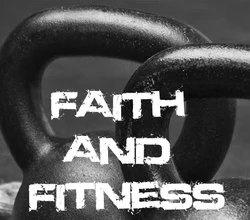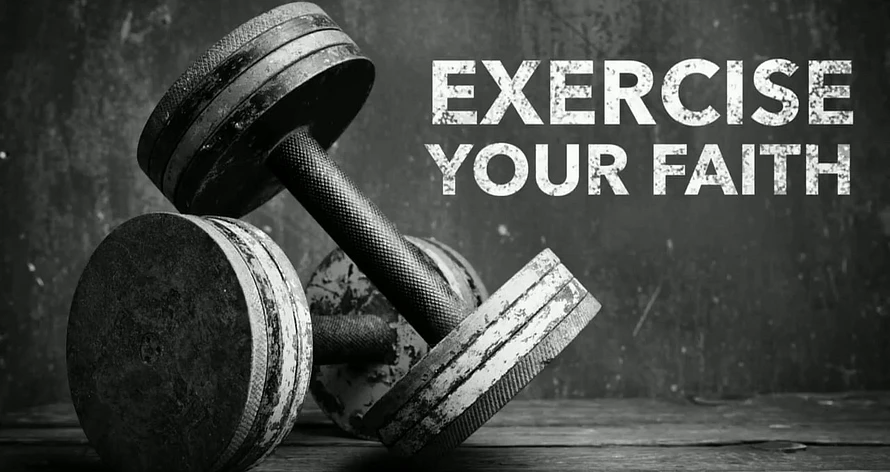It's just the beginning of the Race
Summary of Part 1: Preparing for the Fast
In Part 1, we laid the foundation by viewing Lent through the lens of athletic preparation. Just as athletes train their bodies with purpose and direction, Orthodox Christians are called to prepare their souls with fasting, prayer, and repentance. The Apostle Paul frequently draws parallels between the spiritual life and athletic competition—not for novelty’s sake, but because training requires commitment, endurance, and a goal. The fast is not a spiritual punishment; it is a discipline of love.
We reflected on the necessity of preparation—not just food-wise, but mentally and spiritually. This includes clearing space in your schedule for prayer, setting boundaries around distractions, and creating a realistic fitness plan that aligns with the goals of the season. We acknowledged that exercise is not the enemy of fasting; rather, it can serve it when done with humility and intention. The body, though secondary to the soul, is still a sacred instrument, and preparing it for a season of restraint and offering helps align it to the soul’s pursuit of Christ.
We also noted that fasting is not one-size-fits-all. Each person approaches Lent with different strengths, weaknesses, and circumstances. Just as athletes have customized training regimens, so too should our spiritual and physical approach to Lent be adapted to our needs—with the guidance of the Church and our spiritual father.
---
Summary of Part 2: The Fast in Action
In Part 2, we moved from preparation to implementation—what it means to actually live the fast. We talked about navigating the tension between maintaining physical health and honoring the deeper, spiritual aims of the season. For those who are active, the first few days or weeks of fasting can bring fatigue, loss of motivation, or dietary confusion. That’s normal—and part of the ascetic struggle.
We explored how to adjust training intensity, simplify routines, and ensure proper rest. We also examined common pitfalls, like the temptation to overcompensate with fasting-legal processed foods. A high-carb or low-protein diet can cause sluggishness and muscle breakdown, which undermines both health and focus. We suggested simple protein and fat sources allowed during the fast (when permitted), and emphasized staying hydrated, getting sleep, and listening to the body.
The heart of Part 2 was the reminder that Lent is not about results—it’s about transformation. Skipping a workout or modifying a goal isn’t failure; it’s discernment. And just as in physical fitness, growth in the spiritual life happens slowly, with consistency and patience. This season is about resetting our inner compass toward the Kingdom of God—through every meal, every step, every struggle.
---
Part 3: To Everything There Is a Season
> "Is the finer and more important focus, the body is also intended for health and strength within its ability. Asceticism means exercise. The fast is a spiritual exercise. There are many exercises for the soul. It is also beneficial within its proper place to exercise the body. Let's not forget that the imagery of spiritual asceticism comes from the asceticism of an athlete preparing for a contest."
> Question: How can performance, maintenance, macros, and cutting weight be managed during the Fast?
Well, the fast can be a great opportunity to cut weight! People come in all shapes and sizes. So, one person's issue may not be the same as another person's. I'm on the slim side and usually lose weight during the Fast. I just factor it in and get ready for it. Someone who is short and stout may not have as much of a problem with losing weight. So, knowing your body and its function is helpful. I exercise because I have experienced its benefits. I enjoy the discipline it brings too. But I don't do it on a competitive level. So keep that in mind. I can maintain my exercise performance pretty well during the fast but as I mentioned above, I modify my routine and expectations a little. Today we have a lot of overly processed food. Sadly, I think it's easy to eat these things during the fast. Sometimes the fast becomes a giant carb-load! But that is not healthy long-term. We need to fast in a smart manner. This just takes a little effort on our part. I don't think that the original intent of the fast was to eat pasta all fast long.
Speaking for myself as an American, I've had to learn to fast. There are of course the basic fasting “rules,” yet learning to apply them in an intelligent manner is important. There are a number of resources for this, that is for the practical side of fasting. We read a lot about the spiritual side, which is vital and indispensable, but we need to also have a knowledge of the physical “how” of fasting. That would be a bit involved here and there are other resources that unpack this in a helpful manner, there is one example, How to Eat Well During an Orthodox Lent. Besides striving to eat healthy and nutritious food during Lent, I also will use a purity tested vegan protein powder, one that is free of soy protein too. I mention purity testing because vegan proteins can have high levels of residual pesticides, so do your research. I also use creatine. Although it was originally found in meat, the process of making it today doesn't utilize meat at all, so it is fasting friendly. Certain research shows that creatine is not only helpful for muscle maintenance but is also beneficial for cognitive function.
Let's remember that to everything there is a season. During Lent we can and should exercise but with the understanding that the primary focus of Lent is spiritual exercise. So we can sacrifice a little of our physical strength for the greater and everlasting spiritual gains.
Thank you for the questions, and I hope that my answers are helpful. I'm simply sharing my experience and remember to talk to your own Priest about these things too. Good strength to you all and may the Lord bless you!
— Fr. Zechariah Lynch
It is a pleasure to write to you all but this is the end of the Lenten blog they will remind pin, remember to make Christ your goal and treasure and thank God for those who helped me along the way.


